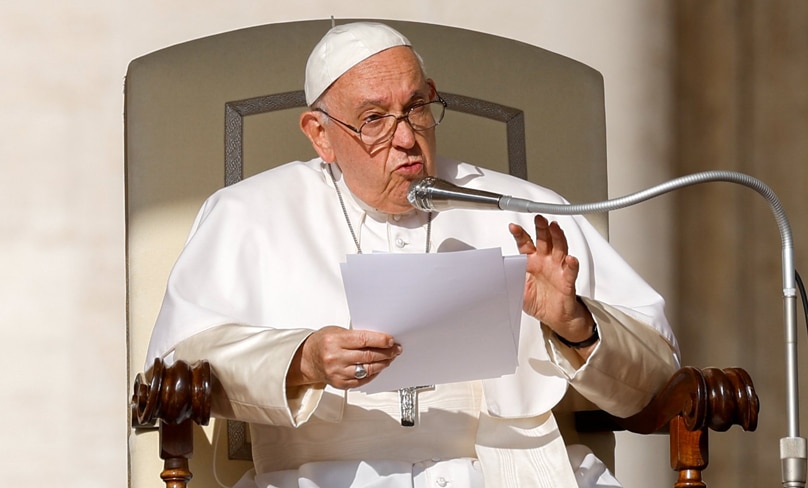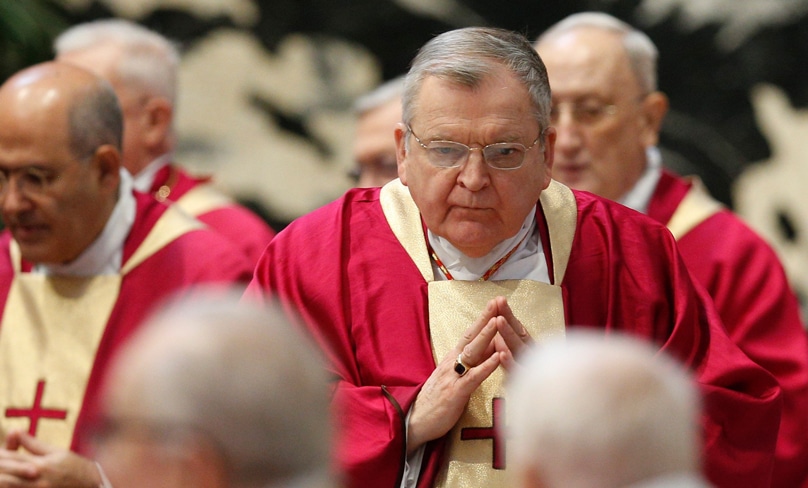
By Justin McLellan, OSV
The Catholic Church, in pursuit of “pastoral prudence,” should discern if there are ways of giving blessings to homosexual persons that do not alter the church’s teaching on marriage, Pope Francis said.
Writing in response to a “dubia” letter delivered to him by five cardinals seeking clarification on doctrinal questions, the pope addressed issues surrounding the authority of the synod, women’s ordination and blessing homosexual unions in a letter made public on 2 October.
Marriage is an “exclusive, stable and indissoluble union between a man and a woman, naturally open to conceiving children,” wrote the pope. “For this reason, the Church avoids all kinds of rites or sacramentals that could contradict this conviction and imply that it is recognising as a marriage something that is not.”
But pastoral charity also is necessary, and “defence of the objective truth is not the only expression of that charity, which is also made up of kindness, patience, understanding, tenderness, encouragement,” he added.
“For that reason, pastoral prudence must adequately discern if there are forms of blessing, solicited by one or various persons, that don’t transmit a mistaken concept of marriage.”
Pope Francis added that decisions made in specific circumstances should not necessarily become a norm regulated by a diocese or bishops’ conference, noting that “the life of the church runs through many channels in addition to regulatory frameworks.”
The pope’s comments came in response to a “dubia” letter dated 10 July seeking clarification on doctrinal questions written by five retired cardinals: US Cardinal Raymond L. Burke, German Cardinal Walter Brandmüller, Mexican Cardinal Juan Sandoval Íñiguez, Guinean Cardinal Robert Sarah and Chinese Cardinal Joseph Zen.
The pope’s response is dated 11 July, but it was made public on the website of the Dicastery for the Doctrine of the Faith only on 2 October after the cardinals released a follow-up letter.
They had given the pope the second letter on 21 August with rephrased questions to solicit “yes” or “no” answers but did not receive a response from the pope.
“Given the gravity of the matter of the dubia, especially in view of the imminent session of the Synod of Bishops, we judge it our duty to inform you, the faithful, so that you may not be subject to confusion, error and discouragement,” the cardinals wrote in an open letter explaining their decision to make the document public on 2 October.
“The pope already responded to them,” Cardinal Víctor Manuel Fernández, prefect of the Dicastery for the Doctrine of the Faith, told the Spanish newspaper ABC the day the letter was released.
“And now they publish new questions as if the pope were their slave for running errands.”
The cardinals had asked the pope about St John Paul II’s declaration that “the church has no authority whatsoever to confer priestly ordination on women.”

“Nobody can publicly contradict” the church’s current rules prohibiting women’s ordination, the pope wrote, “however it can be a subject of study, as is the case with the validity of ordinations in the Anglican Communion.”
The letter asked if synodality could form part of the church’s governing structures as an exercise of the church’s supreme authority, to which Pope Francis replied that synodality “as a style and energy, is an essential dimension in the life of the church.”
Besides, he told the cardinals, “with these very questions you manifest your need to participate, to freely express your opinion and to collaborate, thus calling for a form of synodality in the exercise of my ministry.”
The Vatican also released responses to 10 further questions submitted by Czech Cardinal Dominik Duka in relation to the Holy Father’s 2016 Apostolic Exhortation, Amoris Laetitia, and the question of “the administration of the Eucharist to divorced couples living in a new union.”
The Czech cardinal’s own “dubia” letter was submitted on 13 July, on behalf of the Czech Bishop’s Conference, while the response issued on 25 September was signed by both the Holy Father andCardinal Fernández.
Regarding admittance to the Eucharist for divorced and remarried Catholics, Cardinal Fernández wrote that priests should provide pastoral accompaniment but “it is each person, individually, who is called to put himself before God and expose his conscience to him, with both its possibilities and its limits.”
“This conscience, accompanied by a priest and enlightened by the guidelines of the Church, is called to be formed to evaluate and give a sufficient judgment to discern the possibility of accessing the sacraments.”
The National Catholic Register reported that the response from the Dicastery for the Doctrine of the Faith states that, “remarried divorcees should ask themselves how they behaved towards their children when the marital union entered into crisis; whether there have been attempts at reconciliation; how the partner’s situation is abandoned; what consequences the new relationship has on the rest of the family and the community of the faithful; what example it offers to young people who must prepare for marriage.”
The response from the Vatican also said bishops should develop criteria based on Amoris Laetitia for their dioceses, asking for bishops conferences to agree on “minimum criteria.”
With additional reporting by CW Staff Writers
